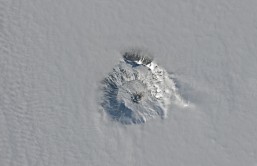Before the third landing attempt, SpaceX's Elon Musk estimated the success rate of landing the Falcon 9 rocket on a floating barge to be 50/50. According to American Live Wire, Musk said the rocket "landed fine, but excess lateral velocity caused it to tip over post-landing."
During a typical launch, the rocket used either splashes into the ocean or burns up in the atmosphere. Musk is on a mission to recover and reuse rockets to make space travel greener and less costly.
"The rocket is launching out over the Atlantic Ocean, so the easiest place to land it would be straight out into the ocean," said Paul Huter, an American Institute of Aeronautics and Astronautics aerospace engineer, according to American Live Wire. "Now, obviously, this presents challenges when compared to landing (a rocket) on solid ground as something at sea is constantly moving around. But in terms of energy required (most of which has already been used during the launch), it is more efficient to try and land on something in the ocean."
SpaceX announced a fourth attempt will be made in June when the Dragon spacecraft heads out on another International Space Station resupply mission. Musk said he hopes the technology will be perfected by then.
Huter is doubtful, according to American Live Wire: "I think SpaceX has the capability and the know-how to land on the floating barge, but there are a lot of variables that need to be taken into consideration, which make it a difficult task. With unlimited time and money, they could pull it off and revolutionize space launch technology. But they only have so many launches, and each failure costs them money."








